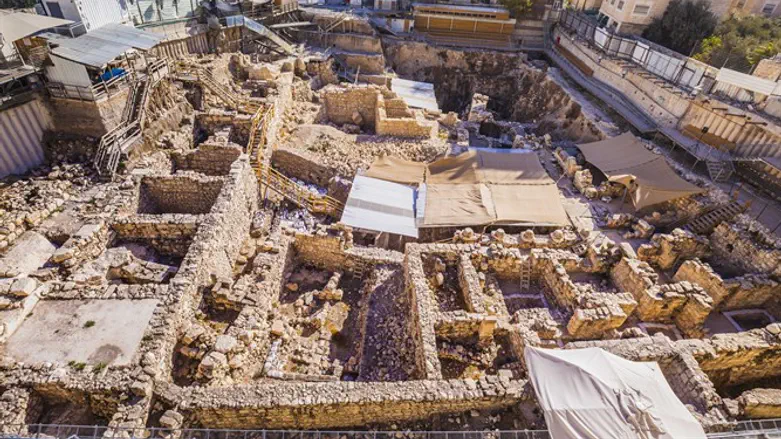
A piece of pottery with an Arabic inscription from the Abbasid period (9th-10th centuries CE) was discovered last week in archaeological excavations by the Israel Antiquities Authority and Tel Aviv University in the Givati parking lot in Jerusalem's City of David.
The two-line Arabic inscription written on the tiny object - one centimeter long - was discovered in an excavation funded by the City of David Association. The writing, deciphered by Dr. Nitzan Amitai-Price from the Rothberg International School at the Hebrew University, bears a personal blessing or prayer:
כרים יבטח באללה ﻳﺜﻳﻖ (?) ﺑﺍﻠﻠﻪ ﻛﺮﻳﻢ
רבו (רב) העולמות אללה ﺮﺒﻪ ﺍﻠﻌﻠﻣﻳﻦ ﺍﻠﻠﻪ (?)
Karim will trust in Allah (?)
Rabbo ("rabbi" - Master)(?) of the worlds is Allah
The text of the first line is known from imprints made of semi-precious gemstones, as well as from graffiti along the pilgrims' route to Mecca (Darab al-Haj) from the 8th century CE. The lower part of the letters in the second row is worn, and its reading is based on similar versions appearing on personal stamps and several verses of the Koran.
According to the excavation's directors, Professor Yuval Gadot of Tel Aviv University and Dr. Yiftach Shalev of the Israel Antiquities Authority: "The size, shape, and wording of the object indicate it was probably an amulet for blessing and protection. The tiny object was discovered in a small room, sealed between plaster floors. Pottery shards discovered at the site, including a clay lamp discovered whole, date to the Abbasid period. "Unfortunately," the researchers say, "the meager preservation of the ruins makes it difficult to identify the purpose of the building, but it's interesting to note a number of installations attesting to cooking activity were discovered here, and modest buildings, including residential buildings that were combined with shops and workshops, were discovered in previous excavations. We assume the building in question was part of the same industrial zone."
The tiny amulet is direct testimony to daily life in Jerusalem during the early Islamic period. It is not clear at this stage whether it was intentionally placed under one of the floors during construction, or whether the tiny object was carried by a man named Karim who lost it, but it seems that it was an amulet with the inscription praising G-d.
The researchers say "since there's no hole in the amulet that can be threaded onto a string, it's likely it was embedded in a piece of jewelry or in a container."
Dr. Nitzan Amitai-Price who deciphered the inscription notes that seals made of semi-precious stones with similar texts are known of that date back to the Abbasid period, but such pottery vessels, certainly ones as small as this, are relatively rare archaeological finds.